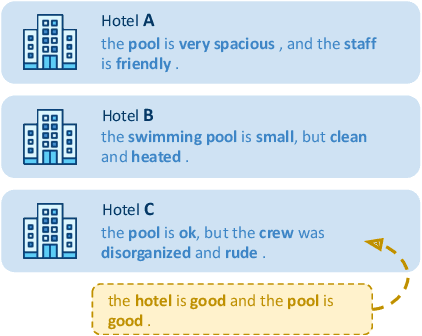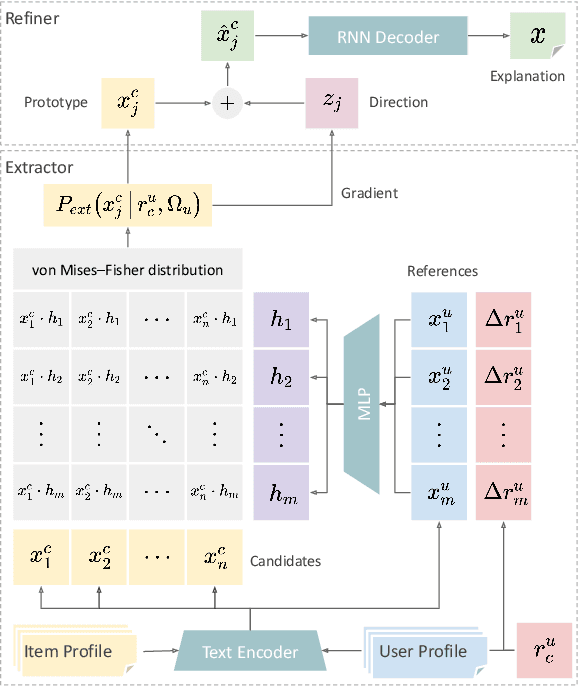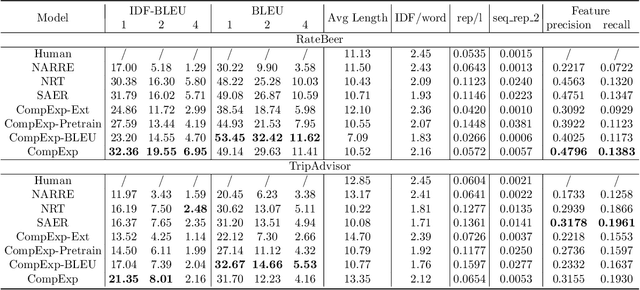Comparative Explanations of Recommendations
Paper and Code
Nov 01, 2021



As recommendation is essentially a comparative (or ranking) process, a good explanation should illustrate to users why an item is believed to be better than another, i.e., comparative explanations about the recommended items. Ideally, after reading the explanations, a user should reach the same ranking of items as the system's. Unfortunately, little research attention has yet been paid on such comparative explanations. In this work, we develop an extract-and-refine architecture to explain the relative comparisons among a set of ranked items from a recommender system. For each recommended item, we first extract one sentence from its associated reviews that best suits the desired comparison against a set of reference items. Then this extracted sentence is further articulated with respect to the target user through a generative model to better explain why the item is recommended. We design a new explanation quality metric based on BLEU to guide the end-to-end training of the extraction and refinement components, which avoids generation of generic content. Extensive offline evaluations on two large recommendation benchmark datasets and serious user studies against an array of state-of-the-art explainable recommendation algorithms demonstrate the necessity of comparative explanations and the effectiveness of our solution.
 Add to Chrome
Add to Chrome Add to Firefox
Add to Firefox Add to Edge
Add to Edge